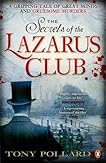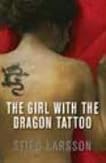 War and Peace
War and Peace by
Leo TolstoyMy rating:
3 of 5 starsWhew! I finished it. All 1215 pages. Plus the author's comments in the appendix.
Overall, this was not an easy read, but it wasn't a bad read. It was different from every other novel I've read. (In fact, Tolstoy says this wasn't a novel, but was “what the author wanted and was able to express, in the form it was expressed.” While it dealt with real events and real people (Napoleon's wars with Russia), he uses fictional people to tell the story (such as it is).
I must say, it was a difficult book to get into. The first couple hundred pages were pretty difficult – firstly, because there were a ton of characters introduced, secondly, because they all have multiple names (apparently, Russians use nicknames & diminutives frequently) so it was hard to keep track (I ended up creating diagrams for my reference), and thirdly, because not much happens! There's just a lot of rich people going to parties, gossiping and flirting with one another. And that makes it sound more interesting than it is, I think! But, gradually, the reader begins to understand the different characters, and events develop (war) that make things much more interesting. The rest of the book was much more riveting to me, with the exception of the epilogue (more on that later).
Let me just take a moment to talk about the translation I read. Silly me, at first I didn't really think that there would be multiple versions of 'a classic', but when I found the book in the bookstore, there were at least 5 different translations. After doing some research on the internet, I opted for the translation by Richard Pevear and Larissa Volokhonsky (a married couple who have translated many Russian novels). I chose this one because many reviewers said that it was a more faithful translation, and in their intro, they elaborated quite a bit on the choices they made when translating, and how they tried to keep the rhythm and flow of Tolstoy's prose alive in English. I don't have anything to compare it to, having read no other versions of the book, but I must say that I could distinguish distinct rhythms in different sections, and the words and phrases they used were quite marvelous, at times. I was also extremely grateful for the footnotes, which explained a lot of Russian cultural references (and even pointed out what was a pun in the original Russian). I think they really helped me get a better feel for the book.
But, this is a LONG book. And, once you get past those first couple hundred pages, a LOT happens. It might not have seemed so overwhelming to one more familiar with the time and place of the novel, but I really knew very little about the Napoleonic wars, and certainly nothing about Russian history of the time, and the consequences of the wars. So it held my attention, throughout.
The characters seemed somewhat flat to me, at first. But as the book progressed, I began to see different layers to each of them. But I don't think the individual characters – as characters – were important to Tolstoy. I think he created people he could put in situations in order to illustrate his point.
And what was his point, you ask? Good question!! I think this book is really a long exposition of what history is and what causes (or doesn't cause) historical events. Tolstoy gives many illustrations of events which historians claim were ordered, and caused by, “great, historical characters”, but which didn't really happen according to script, and the only reason things ended up the way they did is because of a whole host of events, decisions and even weather all bearing action on the outcome. Tolstoy does NOT like most historians. He goes off several times about how Napoleon was not some great military leader, and derides historians for portraying him as such.
Which brings us to the epilogue. This book has one of the strangest endings – probably because it's not a true novel, as Tolstoy states. The “story” just kind of stops, and then we get to the epilogue, where Tolstoy starts declaiming very clearly his views on history, power, freedom of will, etc. There is a brief section early on in the epilogue where he does wrap up a little more some of the characters, but it's not really and “ending”. However, most of the epilogue is not 'fiction', but a philosophical treatise. I found this somewhat difficult to get through. I had trouble following all of his arguments and examples. But, fortunately, he makes enough of them (over and over and over) that I understood what he was saying. (And, of course, I had an inkling of what he was trying to say from the rest of the book.) If you want to know what War and Peace is “about”, read the epilogue. It all boils down to Tolstoy's premise that humans don't really have 'free will' when looked at collectively, and that 'great leaders' aren't really the ones who make events happen.
It took Tolstoy about 1180 pages to say this in a 'story', and a few hundred more to fully explain this as a philosophical treatise. Suffice it to say, I found the first 1180 pages easier to read, but I was able to more fully grasp what he was saying after reading the epilogue, and the author's notes in the appendix.
So, it was a long haul, but I'm glad I read it, and I enjoyed most of it! ;-)
View all my reviews >>
 The Secrets of the Lazarus Club by Tony Pollard
The Secrets of the Lazarus Club by Tony Pollard


















